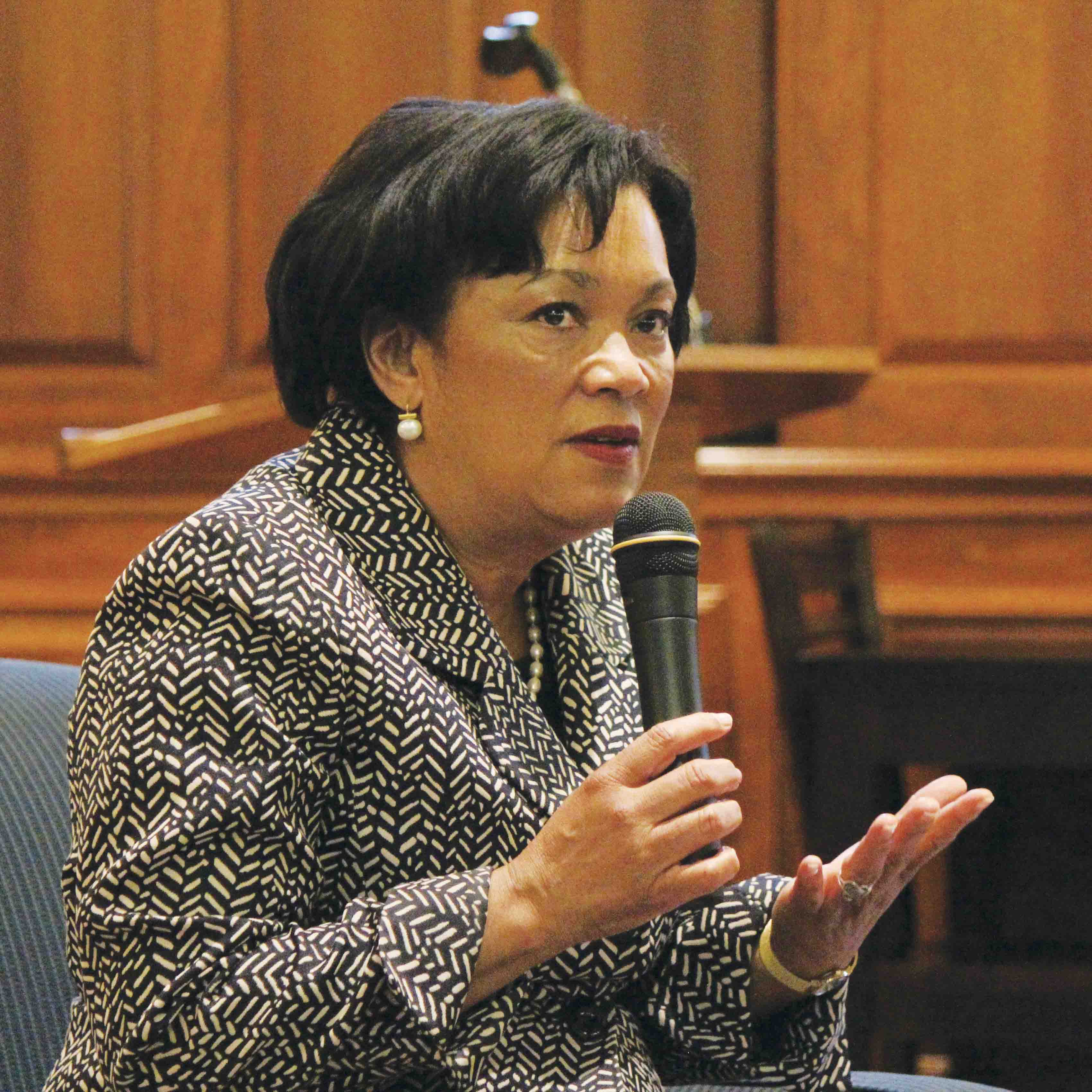
Alexandra Schmeling
Over the last two years, Mayor Toni Harp’s administration has failed to disclose thousands of dollars spent on flights, meals and hotels for trips and conferences.
Harp’s fourth year leading the Elm City has been defined by a slew of monetary woes, as the city’s budget deficit forced unpopular measures including a steep 11 percent property tax hike that went into fruition July 1. But even after the administration has already faced several instances of scrutiny for its spending in the context of austerity measures, public records obtained by the New Haven Independent show significant discrepancies between the actual and reported costs of events Harp and her staff have attended over the last two years.
“There can never be too much transparency when it comes to city finances,” Ward 1 Alder Hacibey Catalbasoglu ’19 said. “At the end of the day, the money the Mayor’s office spends belongs to taxpayers, and taxpayers have the right to know where their money is being spent.”
Since the tightened budget has gone into effect, the Harp administration has fallen under fire for many of its own spending habits — specifically, the mayor granted raises to 37 of her top aides and spent just under $4,000 from the city Fire Department’s budget to buy uniforms for her staff. The billing statements for the Harp administration’s credit card obtained by the Independent span from May 2016 through August 2018, with the exception of a missing record for the month of November 2016.
The statements reflect two main categories of unreported spending.
Firstly, disclosed trips often cost thousands more than the administration’s reported numbers — in at least two cases, the true expenditure was more than double the reported. Harp’s office reported that attendance at the U.S. Conference of Mayors this January and June cost $2,500 and $4,500, respectively. The statements reflect that actual expenditure totaled upwards of $7,000 and $10,000.
In addition to the inaccurate value of reported expenditures, the credit card spending shows entire trips and expenditures by the city staffers that went completely undisclosed. The Independent calculated the cost of such trips to total $26,000 and involve at least 17 staffers across a variety of city departments. Costs included included airfare and hotel stays, as well as several hundred-dollar meals at events such as conferences and symposiums.
These reports come to light as the Elm City seeks to boost its financial health.
Reductions in state funding caused much friction as Harp and the Board of Alders drew up the budget for the 2018–2019 fiscal year, which began July 1. Because the state directed $550 million toward resolving Hartford’s financial crisis by taking on the capital’s debt payments, funding to other cities across the state was compromised. In response, several major cities raised taxes to partially cover the gap in revenue. In May, the Board of Alders approved controversial measures by the Harp administration to increase property taxes by 11 percent, the highest increase of any of Connecticut’s municipalities.
But tax revenue alone will not plug the city’s operating deficit. In August, the Board of Alders approved of a proposal by the mayor to restructure $160 million in existing debt — the largest such debt restructuring in city history — and borrow an additional $58 million. The measure, which lifts the severity of short-term limitations on spending, shifts the timeline of paying back owed money to future decades. The Board of Alders negotiated with the Harp administration, adopting the measures in exchange for a commitment by the mayor’s office to improve the city’s fiscal health by implementing strict controls on spending.
Mayoral spokesman Laurence Grotheer stressed that the charges on the statements fall into the scope of authorized spending by city officials.
“There is no wrongdoing alleged,” Grotheer said. “These are all budgeted and approved and authorized expenses.”
Grotheer explained that the expenses are for trips that will ultimately benefit the city in various ways.
Authorized or not, the administration is expected to report such costs to lawmakers. New Haven’s Code of Ordinances requires that the mayor submit monthly financial reports summarizing financial expenses. One of the eight explicitly listed subjects the reports are required to include is “travel expenses incurred.”
Catalbasoglu agrees that it can be useful for Harp and her staff to attend conferences and events, but a “problem arises when you don’t document these trips and when they significantly go over budget.”
The revelations come in the wake of a city employee, Bianca Bowles, racking up $11,000 in fraudulent charges on the administration’s credit card, according to the New Haven Register. Last month, in response to the fraud, two of the Elm City’s Alders — Ward 7 Alder Abby Roth ’90 LAW ’94 and Ward 10 Alder Anna Festa — called for an upcoming public hearing on credit card usage held by the Board of Alders’ Finance Committee.
The employee has since been terminated and the city expects reimbursement for the charges. A police investigation is also ongoing. Grotheer told the News that New Haven has since transitioned its financial reviews from monthly audits of statements to verifying transactions in real time.
“There has been an expectation of increased transparency,” Mohit Agrawal GRD ’20, chair of the city’s independent Financial Review and Audit Commission, said. “It shouldn’t take a police investigation into credit card abuse for us to then find out about other spending. And, of course, this is about more than credit cards. We don’t know if there was spending through other means.”
Harp was elected to her first term in 2013.
Angela Xiao | angela.xiao@yale.edu







